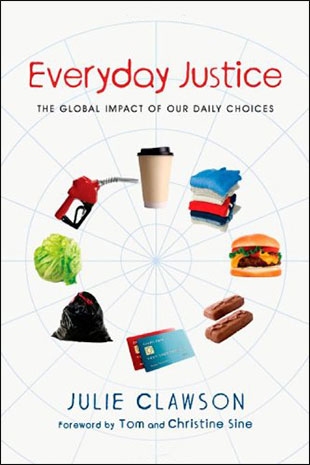"Fair-trade businesses. The more adventurous and entrepreneurial out there could even start their own businesses that work with farming collectives to help guarantee them a fair price and market for their labors. For example, a ministry group in Douglas, Arizona, was concerned by the political rhetoric regarding immigration. So, with a deep care for their friends across the border, this group decided to help thirty Mexican families achieve their dream: staying in Mexico and farming their own land. A $20,000 loan, secured from a Presbyterian group, helped a handful of Mexican farmers set up Café Justo, "a cooperative venture to harvest, roast, package and deliver their own crop to America's booming java market." These farmers take ownership of the entire process from growing the beans to delivering the product to the consumer, and they earn fair prices for their work. It took the commitment of a few caring people who weren't comfortable witnessing economic injustice and who weren't satisfied with status quo solutions to realize that they could be the ones to make a difference. For this group, seeking everyday justice became their pursuit, and they made the lives of others better along the way.
"Others, like eight-year-old Lauren in North Carolina, use what resources they have at the moment to help coffee farmers. The Land of a Thousand Hills fair-trade coffee company involves churches in healing and developing Rwanda through fair-trade coffee endeavors, encouraging Christians to "Drink coffee. Do good." Inspired by their ministry, in November of 2008, Lauren baked 1,250 cookies to sell under the tag line "Eat cookies. Do good." With the help of her parents, Lauren advertised her bake sale all over town and ended up making $3,600 from her culinary efforts. She then used this money to buy fourteen cargo bikes for coffee farmers in Rwanda to use to safely transport their coffee beans. Everyday things like bicycles and bake sales can make huge differences in individual lives."
